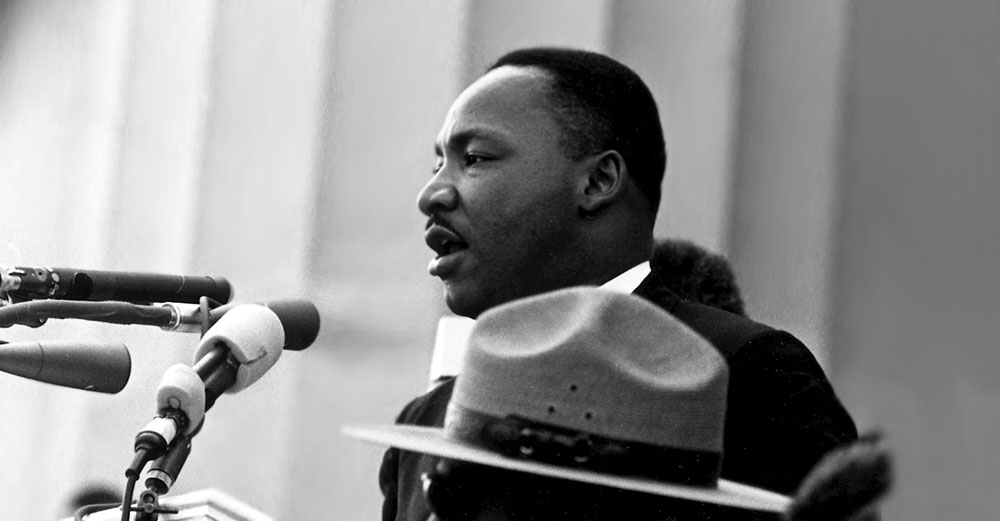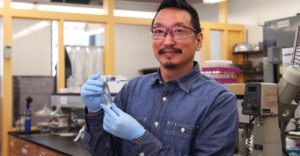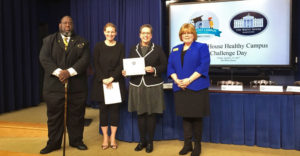
“…And so I stand here to say this afternoon to all assembled here, that in spite of the darkness of this hour, we must not despair. We must not become bitter, nor must we harbor the desire to retaliate with violence. No, we must not lose faith in our brothers and sisters. Somehow we must believe that the most misguided among us can learn to respect the dignity and the worth of all human personality.”
Dr. Martin Luther King, Jr. spoke these words on September 18, 1963 in Birmingham, Alabama. He offered them as part of a eulogy for Addie Mae Collins, Cynthia Wesley, Carole Robertson, and Carol Denise McNair: four pre-adolescent children that were murdered during the 16th Street Baptist Church bombing earlier that month. The murder sent shockwaves throughout the nation at a very turbulent time in our history. Debates regarding diversity, inclusion, social welfare and progressivism had reached a fever pitch leaving many to wonder whether or not the American experiment would survive.
Perhaps the most bewildering aspects of this event were the venue and the victims. Sanctuaries had historically been understood as places that merited respect. They were environments where communities of previously unrelated individuals gathered weekly to foster familial bonds and challenge society to evolve to its highest potential. They were locations where charity was frequently extended and social welfare was regularly enhanced. They were sites where the young gleaned the wisdom of their elders, and where elders galvanized the strength of their young. An attack on such a sanctuary was an attack on the institution best poised to catalyze the actualization of America’s highest ideals.
The murder of these four young women of color was beyond horrifying. Children are our society’s most precious asset, our country’s future. Women have been at the forefront of every major social movement that has propelled our nation to be more equitable. Our country’s diversity of experience, philosophy, and talent help make us who we are. The murder of these four black girls called into question the morality of our country and caused every well-meaning American to look themselves in the mirror to determine who they really were.
Today, many of us find ourselves in front of that mirror again. The drastic changes in our country’s political landscape are causing us to contemplate our nation’s morality, our children’s future and the responsibilities of our institutions. Many of us are unsure of what our future holds and what our roles should be. We find ourselves trying to rationalize the unpredictable and strategize the unknown. Many of our constituents are requesting that colleges and universities become sanctuaries that provide students with safety, community, wisdom, and social mobility. I would argue that we already are, and that the occasion of Martin Luther King, Jr. Day is an opportune time for us to reaffirm our guiding principles and be certain they continue to govern our actions.
Dr. King’s words remind us that our schools must be immersed in hope as opposed to drowned in cynicism. We must maintain our belief that the education and opportunities we provide are transforming hundreds of thousands of our students every year into citizens that will safeguard and promote a better and stronger society. We must also transmit this hope to our students and ensure that the faith they have in themselves outweighs the fear they will feel at times. We must encourage our students to never descend to the level of retaliation through violent words or actions. Instead, we must empower them to use their intellect to create and ratify evidence-based policy that will continue the expansion of opportunity that has been the hallmark of our nation. We must also not lose sight of our ability to enlighten those who disagree with us through honest yet amicable discourse. We cannot shame or demean people into agreeing with us. Instead, we must compel them through forming relationships, frequently engaging in dialogue and providing sound arguments to support our assertions. As Dr. King reminds us, we must not lose faith in our brothers and sisters. We must care for them enough to compassionately show them the error of their thinking, when it exists, and guide them to greater understanding.
We are educators. We use what we have learned to teach society what it can be. We have a responsibility to protect and promote the progress of our nation. Our classrooms are indeed sanctuaries, where the potential of our students is encouraged to bloom. We must remain faithful to the protection of our pupils and the enlightenment of our adversaries. We must believe, as Dr. King so eloquently said, that even the most misguided among us can learn to respect the dignity and worth of all human personality. If the misguided are to learn this lesson, it must be us who teach it.




May I suggest we spend LESS time trying to fix the world & instead spend MORE time fixing Ourselves, Individually, In our own personal lives.
If we spend less time trying to fix the world and more time fixing ourselves, the world will become a better place by default.
Thank you for MLK’s words of togetherness and hope. We accomplished a lot together and deep in my heart, I still believe that we shall continue to overcome. Rest in Peace MLK knowing we shall carry on your legacy for all people.
It was Jefferson who said, “…. a little rebellion now and then is a good thing, and as necessary in the political world as storms in the physical”. (to James Madison, Paris, January 30, 1787)
The good that could come out of this election is to cause our efforts to redouble and refocus on what is important- the legitimacy and care for those least able to care for themselves society as the true measure of our humanity.
Our nation needs to read this again and try to amend its ways. There is too much upheaval, and people are rising up in protest.